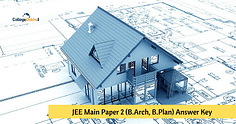- Academic Excellence & Faculty Quality in Tier-1 vs Tier-3 Engineering …
- Infrastructure & Learning Resources in Tier-1 vs Tier-3 Engineering Colleges
- Tier-1 vs Tier-3 Engineering Colleges in India: Industry Connections & …
- Tier-1 vs Tier-3 Engineering Colleges in India: Reputation & Career …
- Challenges and Opportunities in Tier-3 Engineering Colleges
- Faqs

Studying engineering in Tier-1 and Tier-3 colleges in India has some enormous differences, which influence the education quality, placements, and career development. These levels may have a long-term effect on the career of a student. Read this article to know the vast difference in experience pursuing higher education from Tier 1 colleges (IITs and IISc) vs Tier 3 colleges in India, such as Amity University, VIT Vellore etc.
Also Check -
Guide to B.Tech Admission for Specially-Abled Students in 2026
Academic Excellence & Faculty Quality in Tier-1 vs Tier-3 Engineering Colleges in India
The engineering colleges which are in the Tier-1 category, including IITs and NITs, are known due to their high academic standards and well-qualified faculty members. Such institutions focus on research, innovation and deep knowledge of fundamental engineering concepts. The scholarly atmosphere promotes critical and problem-solving skills, which is backed by seasoned professors. Tier-3 colleges, conversely, often struggle with hiring and keeping competent faculty, and the delivery of the curriculum may not necessarily match the best of the best.
Infrastructure & Learning Resources in Tier-1 vs Tier-3 Engineering Colleges
Tier-1 colleges are characterised by cutting-edge laboratories, well-equipped classrooms, and modern technological equipment. These centres add to practical learning and experimentation. Students get access to high-level software, research funds and joint projects. Conversely, Tier-3 colleges are usually run with minimal infrastructure, lab supplies, and exposure to possibilities, and this can be detrimental to the profundity of learning and acquisition of skills.
Also Check -
Guide to B.Tech Admission 2026 for Wards of Armed Forces and Police Personnel
Tier-1 vs Tier-3 Engineering Colleges in India: Industry Connections & Placement Opportunities
The power of industry relationships is one of the major distinguishing factors. Indian and foreign top companies are also targeting such colleges at the Tier-1 level with attractive packages and a variety of jobs in the fields of software, core engineering, consultancy and research. Strong connections by the alumni and special placement offices also help the students to find internships and employment. On the other hand, Tier-3 colleges do not have much presence of recruiters on campus. The students of these colleges are required to heavily depend on off-campus commutes and have to make extra efforts to secure the positions they want.
Tier-1 vs Tier-3 Engineering Colleges in India: Reputation & Career Prospects
Tier-1 college degrees hold a high brand perception, which makes the graduates outstanding in the very competitive job market. The opportunities of higher education, scholarships and international placement are usually enabled by the reputation of these institutions. Tier-3 colleges do not always get the same kind of attention, and in some cases, this necessitates graduates to demonstrate their abilities themselves by certifications, projects or competitive tests..
Challenges and Opportunities in Tier-3 Engineering Colleges
Even though Tier-3 colleges might be short of resources, ambitious students can achieve success through completion of online courses, internships, and self-study. Lots of B.Tech graduates from Tier-3 colleges have demonstrated that it is possible to rise above institutional weaknesses and create rewarding careers with determination and strategic endeavours. This, however, normally requires increased individual investment in skills development and networking.
Although Tier-1 engineering colleges offer a holistic environment in terms of academic and professional development, Tier-3 colleges offer a challenge that will be counterbalanced by personal commitment. The two are subject to choice based on such factors as career goals, financial aspects, and willingness to engage in post-academic learning. This knowledge of the difference can enable the aspirants to make informed choices regarding their education in India in the engineering field.
Related Articles
If you have further queries regarding admission to top private engineering colleges in India , you can write to hello@collegedekho.com or call our toll free number 18005729877, or simply fill out our Common Application Form on the website.
FAQs
Students should consider academic quality, infrastructure, placement records, individual career goals, financial resources, and willingness to invest extra effort beyond academics when making the choice.
Absolutely. While Tier-3 students face more hurdles, motivated individuals can succeed through self-learning, internships, competitive exams, and skill improvement to overcome institutional limitations.
Yes, Tier-1 colleges attract large multinational recruiters offering lucrative salaries and diverse job roles on campus. Tier-3 colleges have fewer on-campus opportunities, so students often compete in off-campus drives, which are more challenging.
Tier-3 colleges generally have less experienced faculty and limited resources, leading to variability in academic quality, whereas Tier-1 colleges have a research-oriented environment with highly qualified professors and advanced learning facilities.
Tier-1 colleges are prestigious, top-ranked institutions such as IITs, NITs, and IISc known for academic rigour, excellent faculty, cutting-edge research, and strong industry connections that lead to high placement rates.

















Similar Articles
JEE Main Safe Rank for IIIT CSE Admission 2026: Detailed Analysis of Previous Years' Trends
JEE Main 2026 Paper 2 (B.Arch, B.Plan) Answer Key (By Feb 15): Download PDF Response Sheet with Question Paper
How Diagrams and Graphs Boost GUJCET 2026 Scores
GATE IE 2026 Exam Analysis, Question Paper, Answer Key, Expected Cutoff
GATE XE 2026 Exam Analysis, Question Paper, Answer Key, Expected Cutoff
GATE Exam 2026 Duration Explained: Why Time Management Matters So Much